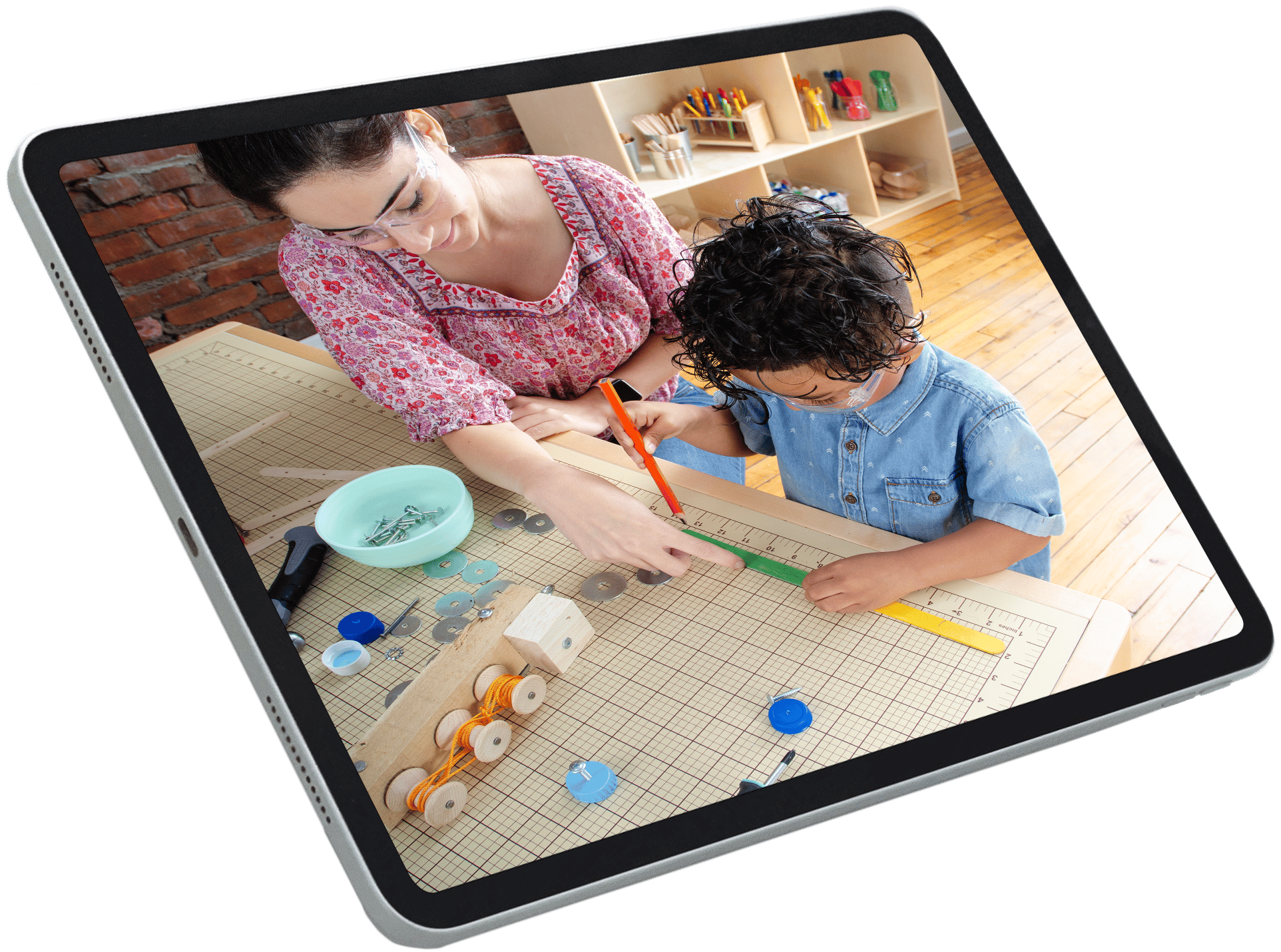
In the third entry in her series Nurture in Nature, Dr. Rachel Larimore explains educators and caregivers the important role outdoor play has in school readiness.
As summer slowly fades to fall there is more talk of getting children "ready" for school. The solution? Outdoor play!
School readiness is so much more than academic skills. It's about supporting the whole child. That is, the child is a combination of knowledge, skills, and attitudes because of all their individual experiences in the world. The question, then, for us as adults preparing them to enter school, is to ask where they are currently and how we can continue to build on their many strengths. Outdoor play is a great tool for supporting children in all domains! Outdoor play can support children's mental skills, approaches to learning, physical growth, and social-emotional development.
Since academic skills tend to be the focus when it comes to readiness, I'll address that straight away. Yes, outdoor play absolutely supports academic skills such as counting, naming letters, writing, identifying colors, etc. For example, sorting fall leaves into different colors is an act of categorizing through color identification. But, beyond isolated knowledge, outdoor play can also support academic success in another way–their love for learning.
If children approach learning with curiosity, persistence, an ability to plan, and engagement with others for learning, they will be successful now and well into the future. The ever-changing outdoor environment provides many opportunities for exploration such as asking questions like "Which end of the caterpillar is its head?" and even physical activities. For example, building an outdoor fort with friends requires being persistent to get it just right while also working together as a team.
Physical activity is often overlooked when it comes to children's readiness for school, but it's vital! Children need the core strength to sit at their desk for long periods of time, fine motor skills for gripping pencils, and whole-body activities for building neural connections across both side of their brain. In outdoor play, children are constantly picking up and collecting loose parts like rocks, leaves, and stick for their play—that means bending and pinching! If you're outside all day be sure to pack a lunch like they'll have at school. For kindergarten age children, this is a great opportunity to practice opening containers, peeling bananas, and so forth. And yet for the child, it isn't about learning a skill, but instead about being outside all day!
Yes, academic skills, approaches to learning, and physical development are important for school readiness, but I've saved the most important for last. Children's social and emotional health is the core of their success in school. After all, social-emotional development is about learning to be with and negotiate life with the adult and children around them while also learning about their own thoughts and feelings. This is particularly true now as we embark on a return to school during a global pandemic.
Outdoor play, whether individually or with others, includes different social-emotional development. Individually the outdoors can provide everything from a general sense of calm to overcoming fear by jumping off a big rock. Jumping in puddles for many children is a moment of pure joy. If the adults jump in the puddle too? Next level joy! Shared experiences with adults and peers are the social-emotional magic of outdoor play. Outdoor play allows for shared recall of events (e.g., "Remember when that frog snatched a fly out of the air?!"), shared moments of awe and wonder (e.g., watching a butterfly land on a flower), and focused attention together (e.g., carefully watching the flurry of activity on an ant hill).
All of this is to say, getting children "ready" for school does not have to be laborious or overly complicated. In fact, the best way to get children ready is to go outside and play! Time playing outdoors in nature supports their curiosity and wonder, their physical development which is critical to being able to physically function in school, and their social-emotional development necessary for their own mental well-being as well as in interactions with adults and peers.
So, go outside and build ramps, dig channels in the dirt for water to flow through, create miniature animal homes out of sticks, gather 100 acorns…and the children will be ready for school!
About the Author
Rachel A. Larimore, Ph.D., is an educator, speaker, consultant, and author. She has written three books including Establishing a Nature-Based Preschool and Preschool Beyond Walls: Blending Early Childhood Education and Nature-Based Learning. Her work focuses on the intentional integration of nature into early childhood education for young children's whole development. Rachel is the Chief Visionary of Samara Early Learning, an organization focused on helping early childhood educators launch nature-based schools or integrate nature-based pedagogy into their existing program. Prior to Samara, she worked for 11 years as the founding director of a nature-based preschool in mid-Michigan.
Explore This Series
Nurture in Nature: Getting Started with Nature-based Learning
Nurture in Nature: Supporting Equity in Outdoor Play
Nurture in Nature: Back-to-School Tips for Outdoor Play
